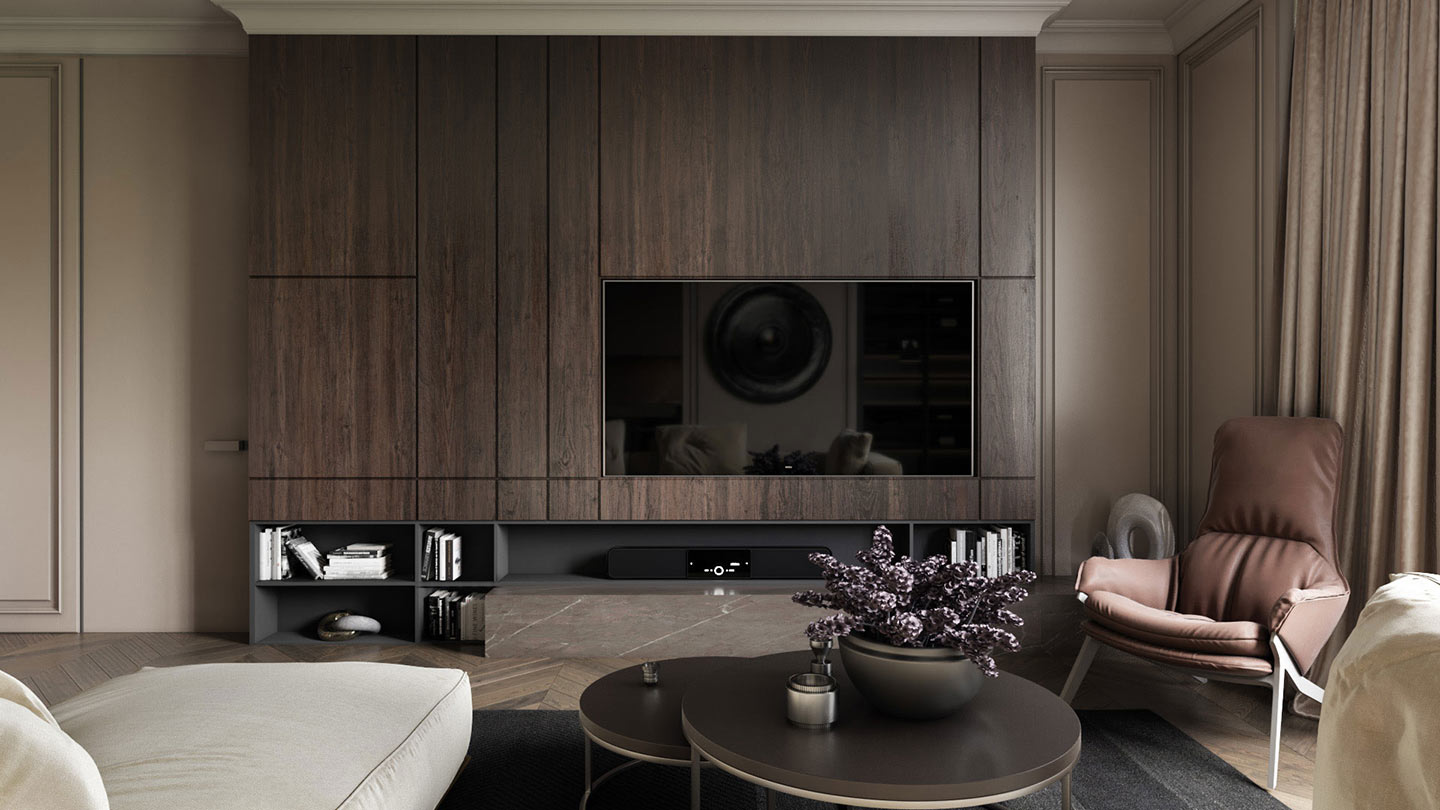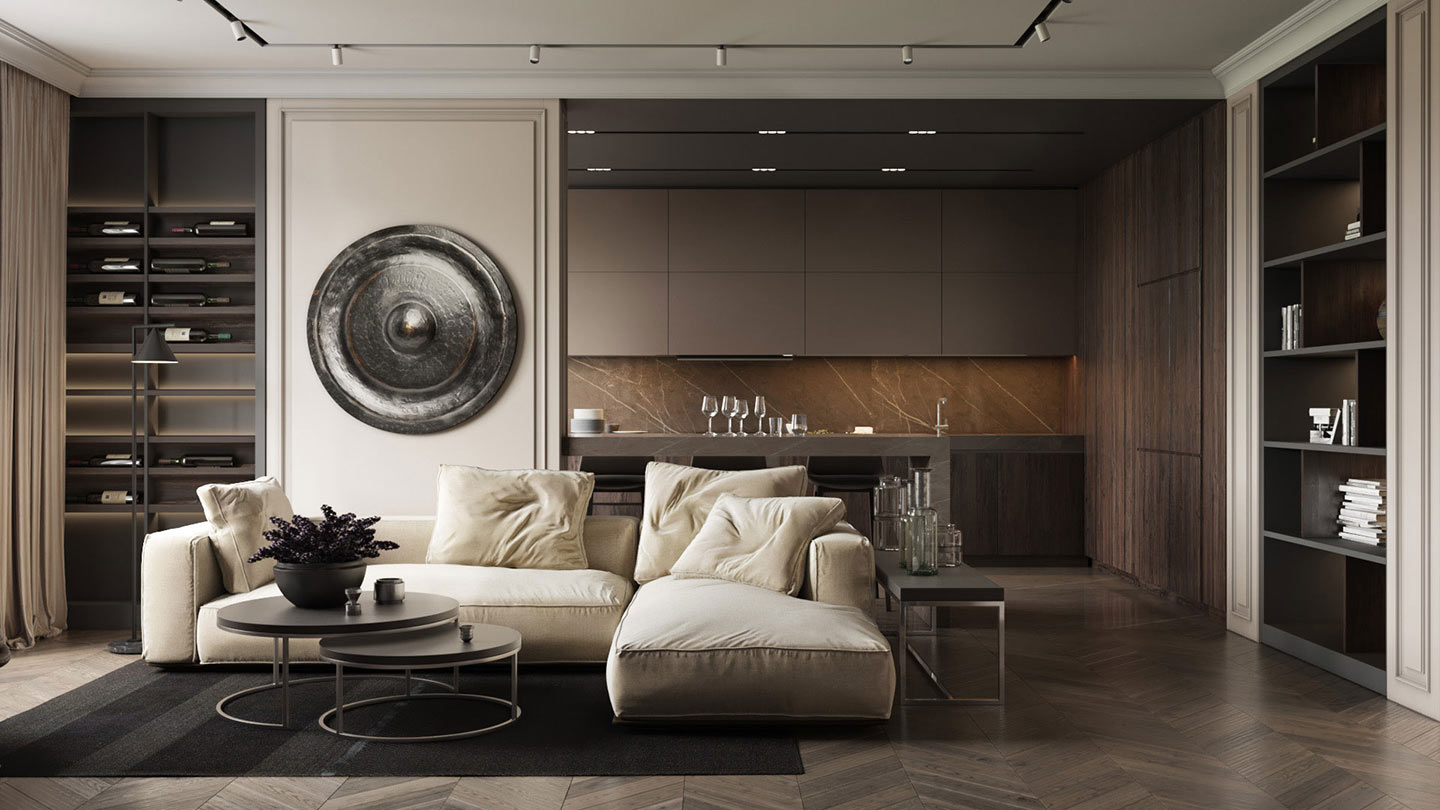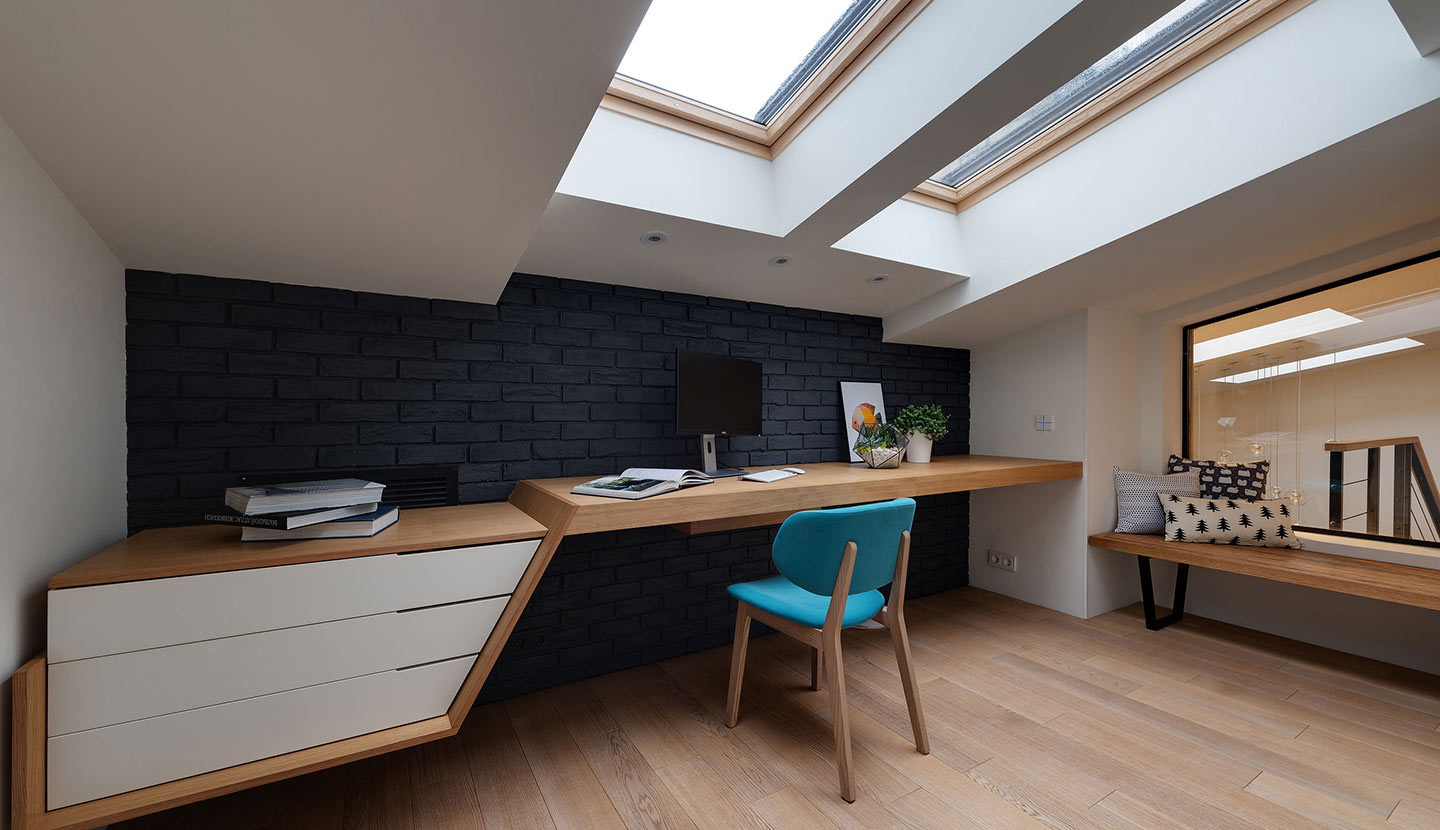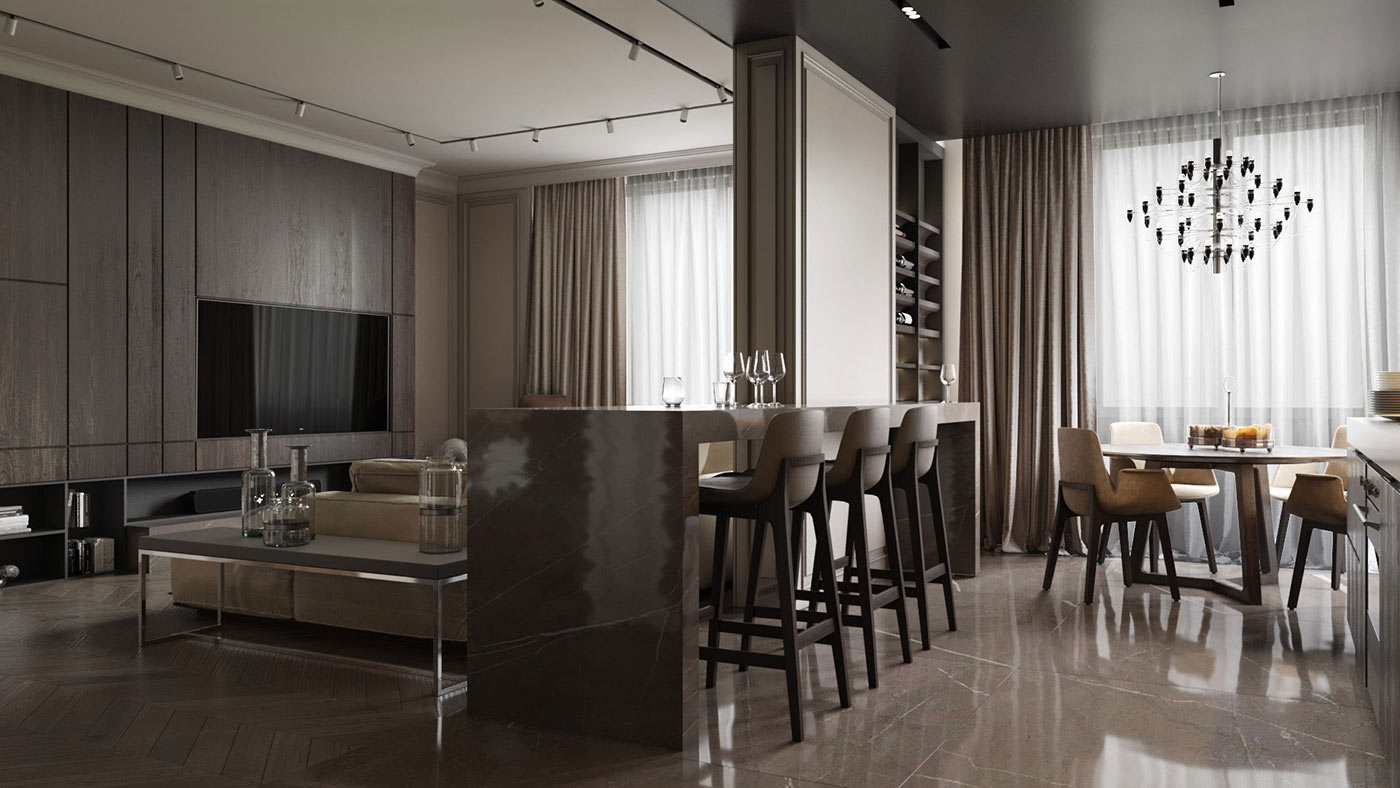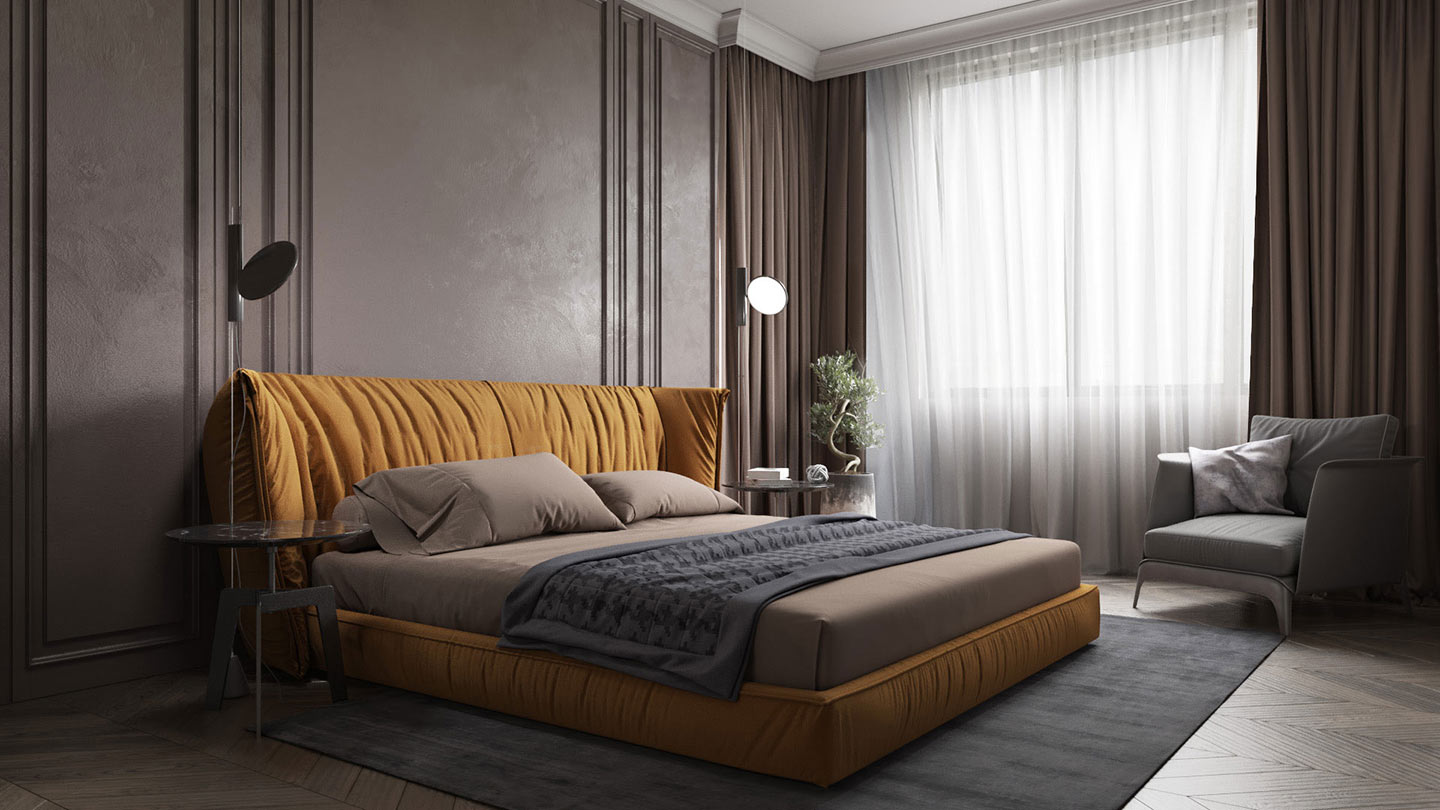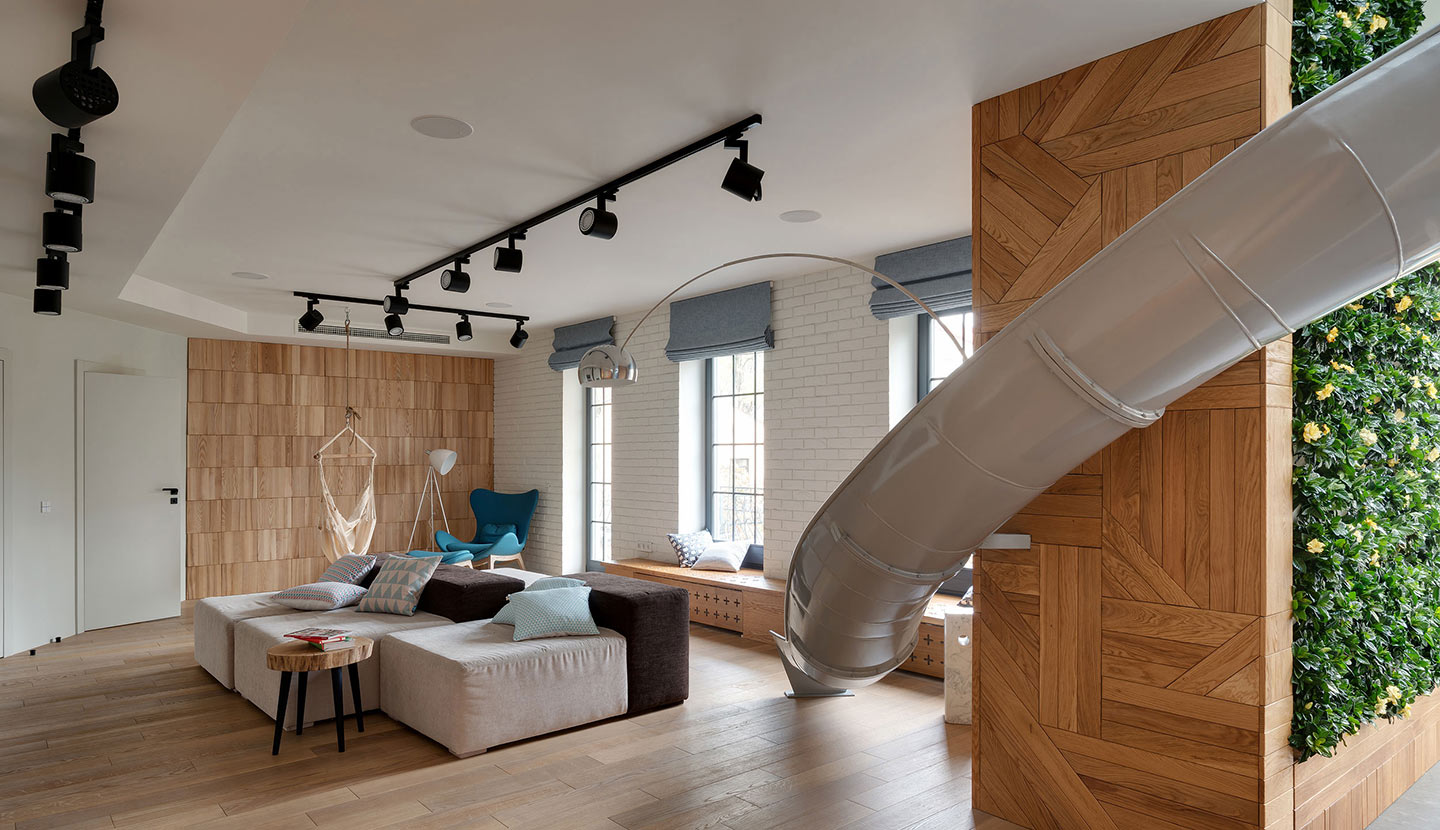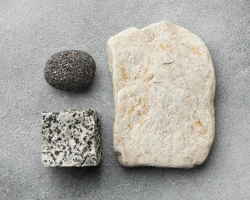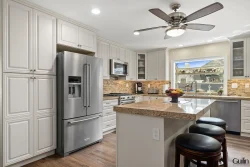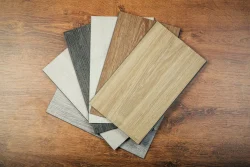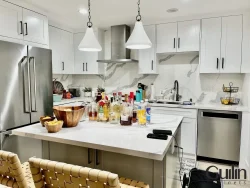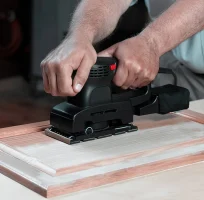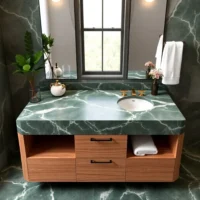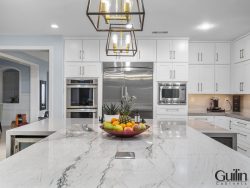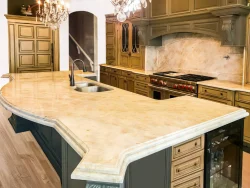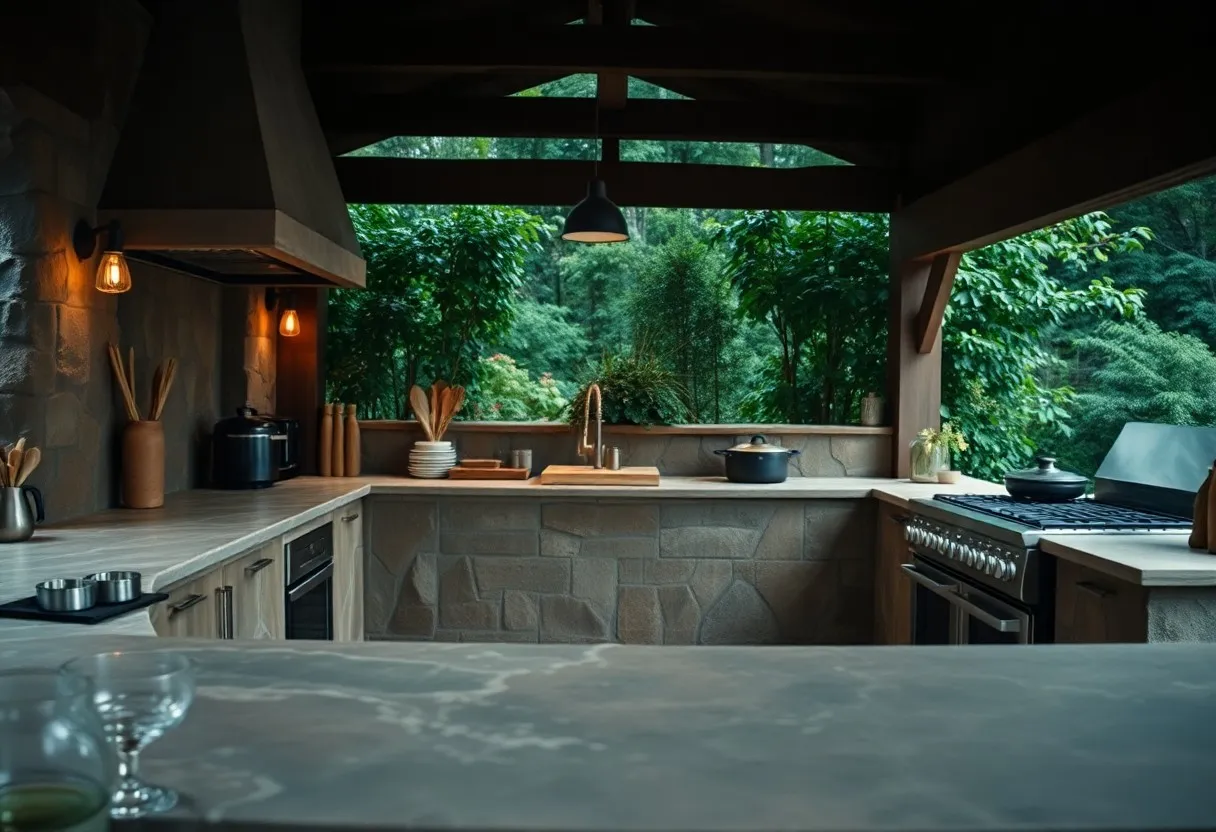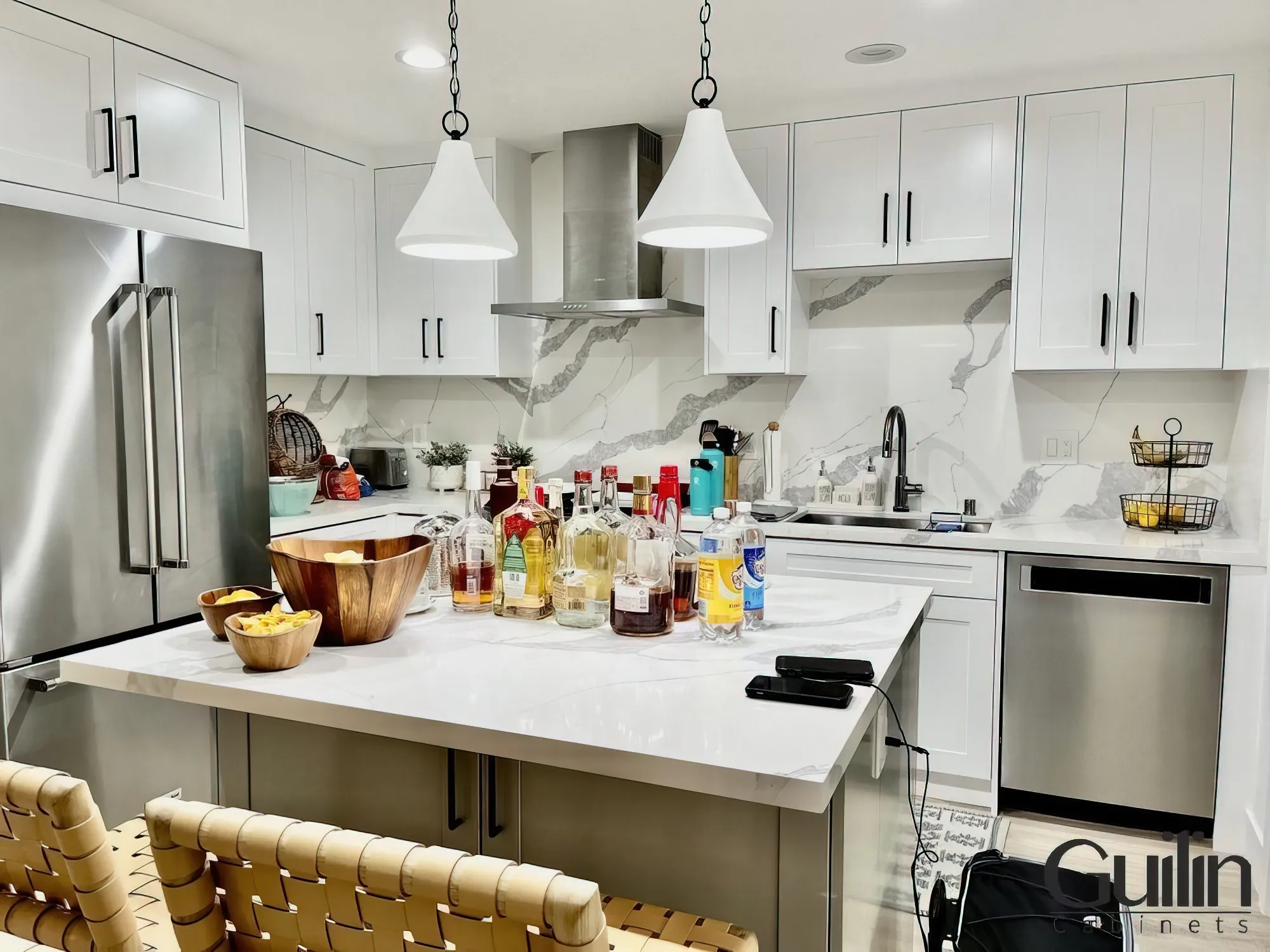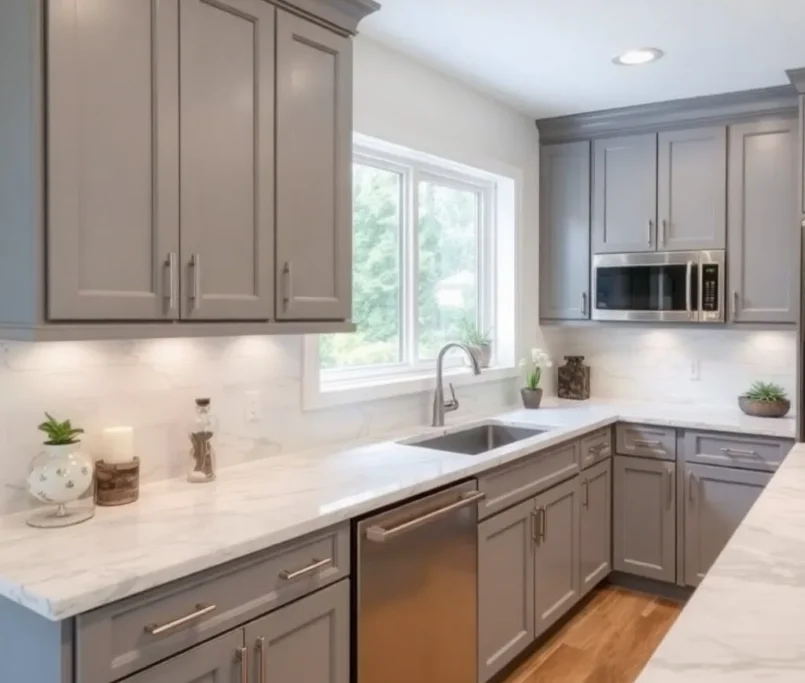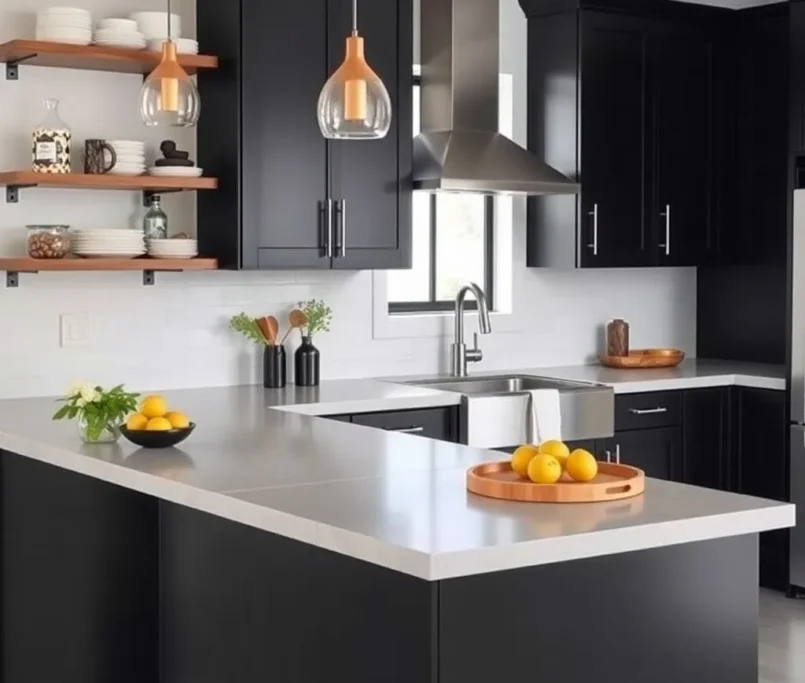For the same reason that many homeowners and designers around the world love granite for kitchen counters, it is also a popular choice for backsplashes. Its strength, durability, resistance to high temperatures, and acidity are just a few of the reasons why it is so popular as a countertop or backsplash material. In addition, granite is available in a wide range of colors and patterns, including dramatic streaky, wavy, and swirly surfaces, so you can really let your imagination go wild when designing a kitchen backsplash. The benefits, drawbacks, and available options for granite slab backsplashes are covered in detail in this tutorial.
=> Related Article: The Average Price of Different Countertops
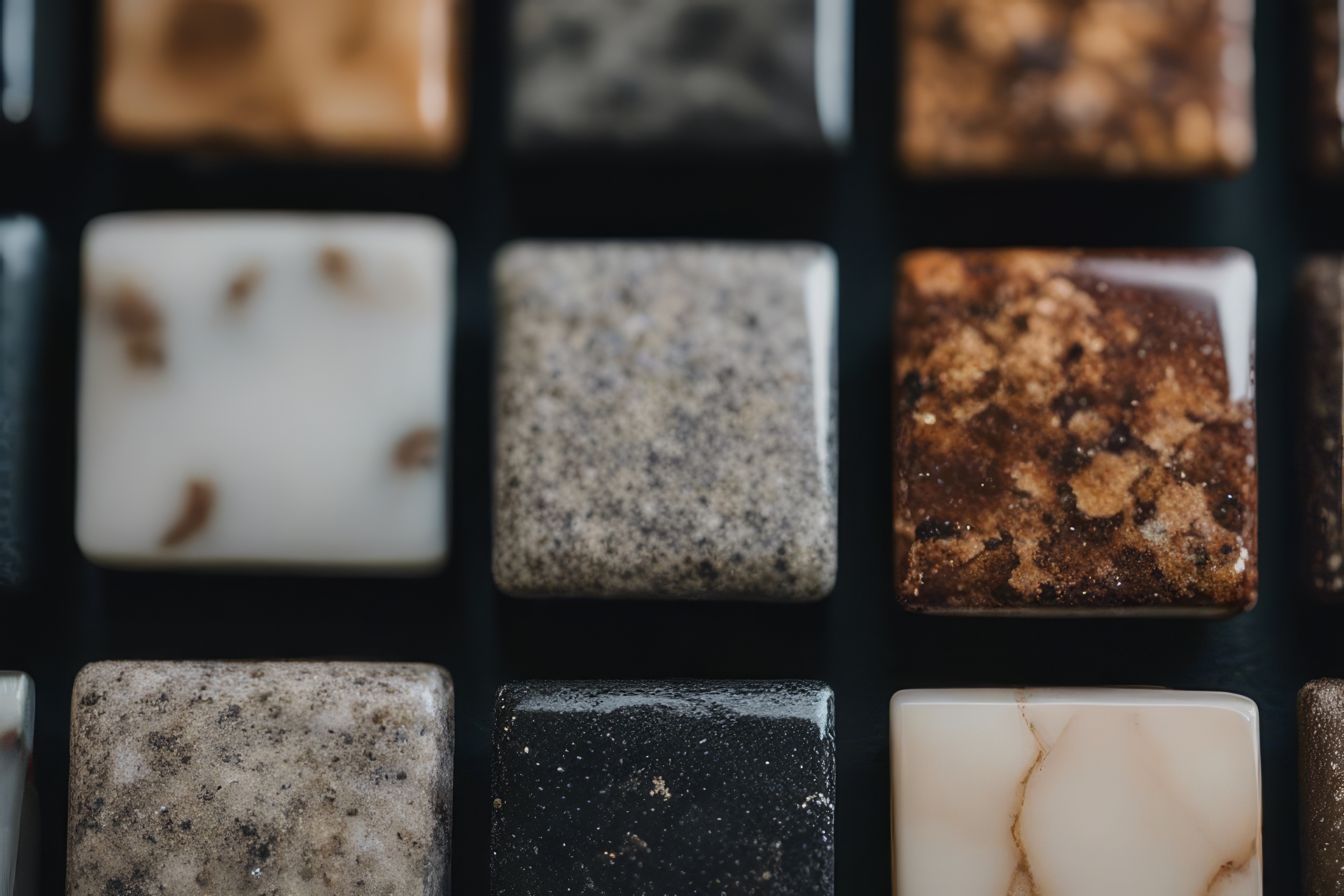
Granite Backsplashes: What Are They?
For homeowners looking to add sophistication and elegance to their kitchen or bathroom, granite slab backsplashes are a popular choice. These backsplashes are made of large, seamless pieces of granite that run from the countertop to the bottom of the wall cabinets. The use of granite slabs offers a sleek and modern aesthetic that enhances the overall look of the space.
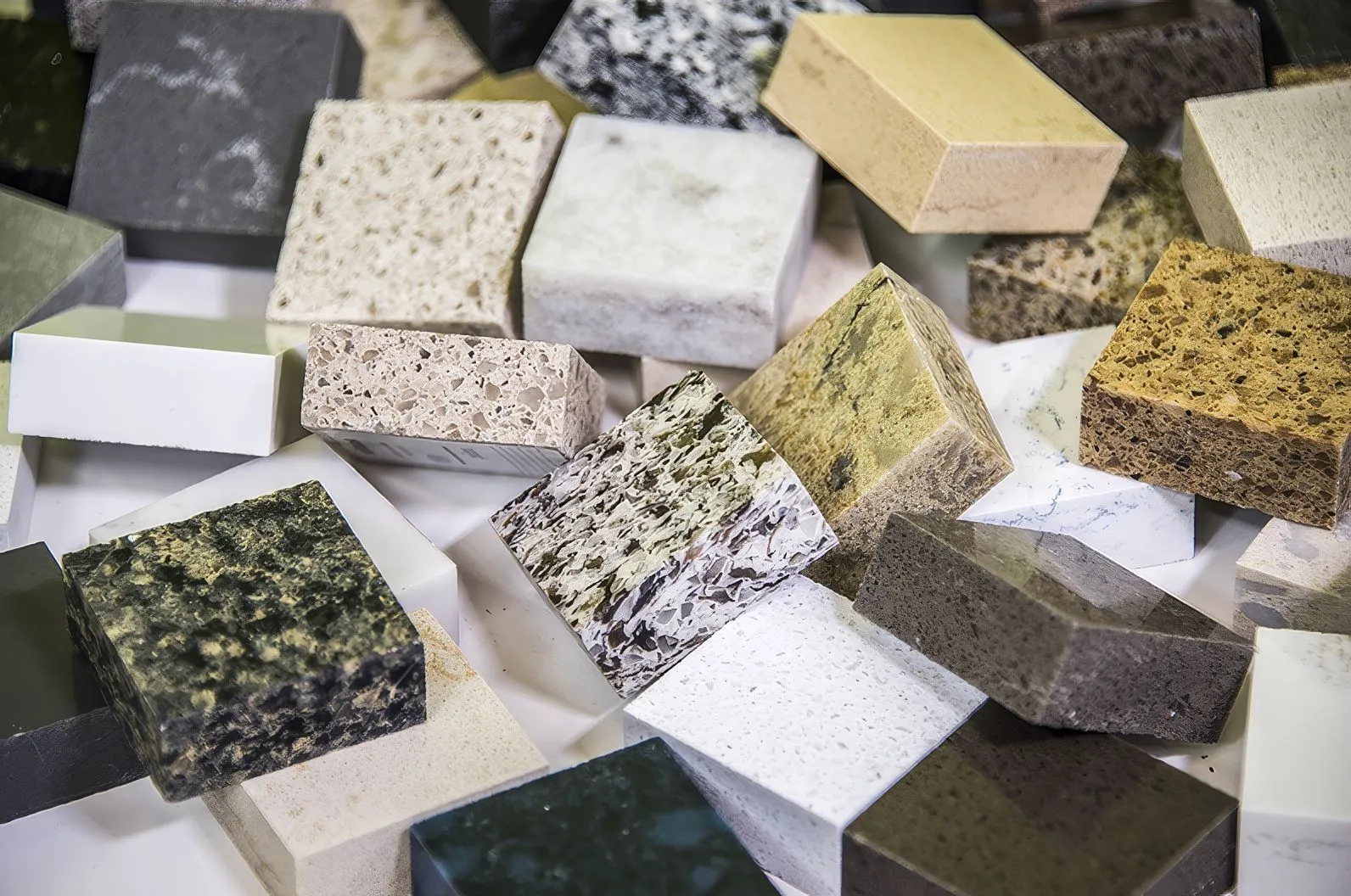
Pros of Granite Backsplashes
Durability and Longevity
Granite is a great material to use for a backsplash since it is long-lasting and sturdy. Kitchens and other high-traffic areas are perfect places for granite’s famed longevity and durability. The elegance of your granite backsplash will remain intact for many years due to its inherent resistance to scratches, stains, and heat damage. A lifetime of use is possible from a granite backsplash with the right amount of Care.
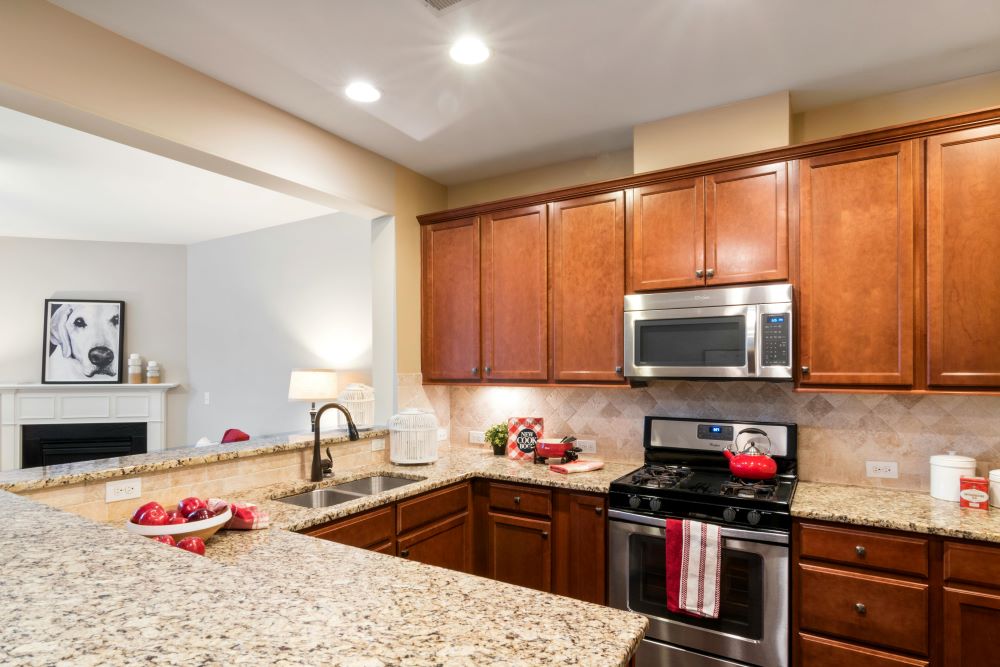
Unique Appeal to the Eyes
Consider installing a granite backsplash in your kitchen if you want to make a classy statement. No other material can match the one-of-a-kind appearance that granite achieves thanks to its irregular patterns and colors. Homeowners who are looking for a sophisticated aesthetic often choose granite for their kitchens because of its natural beauty, which gives character and depth to any room. Granite provides an array of possibilities to cater to your style, whether you lean towards a more understated neutral tone or a striking statement piece.
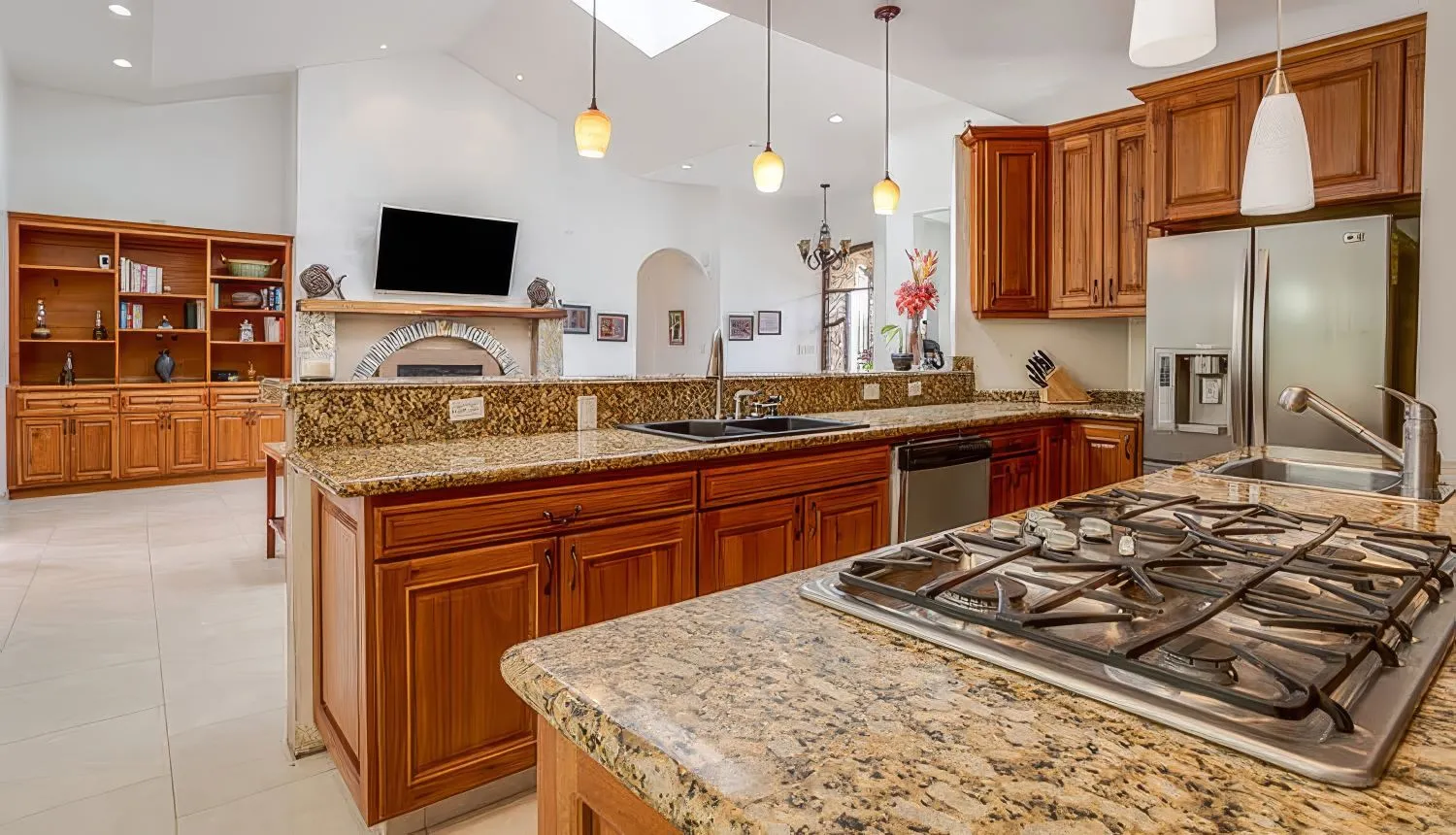
Durability and aesthetics come together seamlessly with a granite backsplash, making it a versatile choice for any kitchen design. The combination of strength and beauty makes granite a top contender for homeowners looking to enhance their kitchen’s overall appeal.
Heat Resistance
Granite is not only durable and beautiful but also highly heat resistant. This quality makes it an ideal choice for a backsplash behind stoves and cooktops, where it may be exposed to high temperatures. Granite can withstand heat from hot pots and pans without damage, providing peace of mind for homeowners who love to cook in their kitchens.
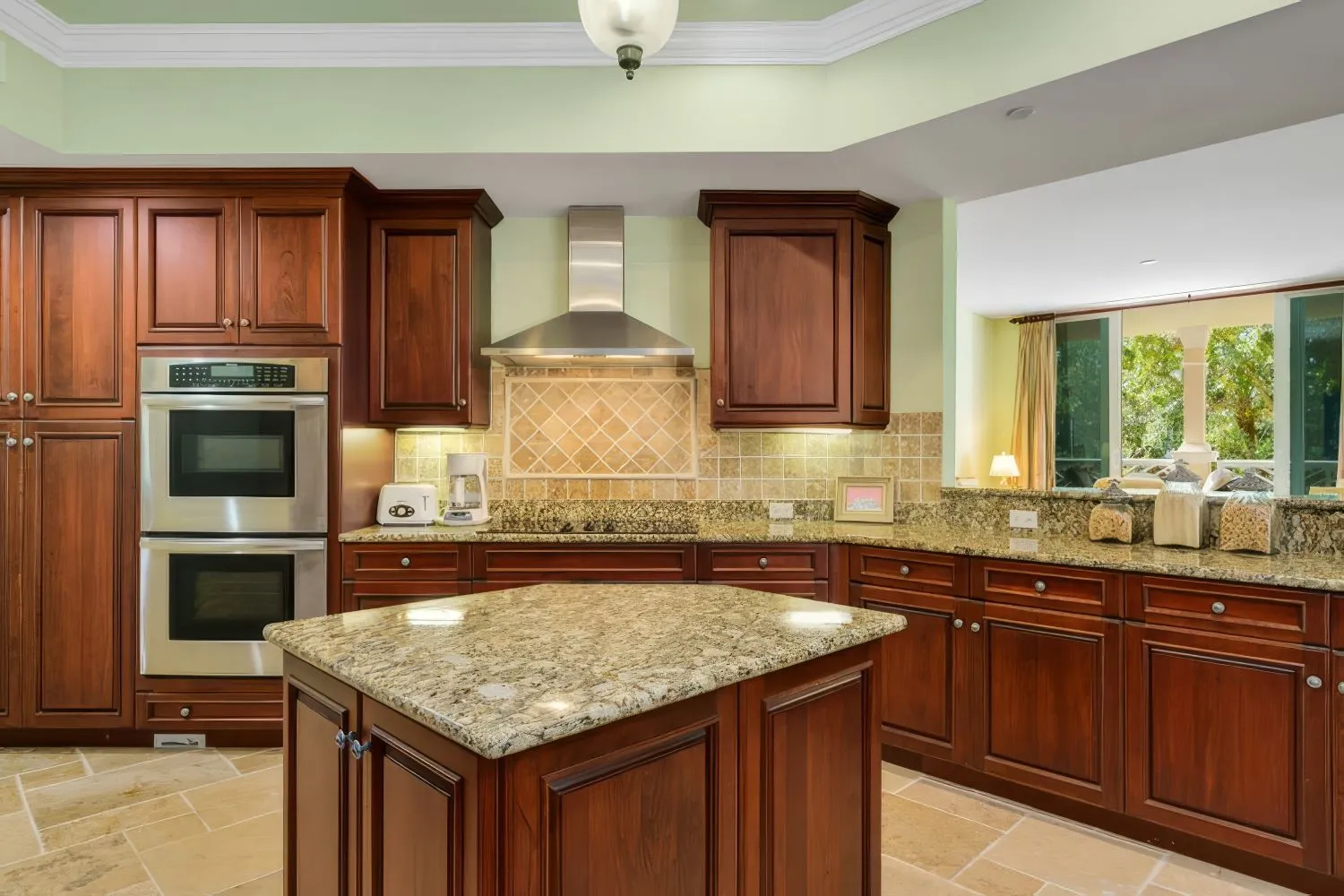
Unique patterns and colors in granite are not only visually appealing but also functional when it comes to heat resistance in the kitchen. The combination of aesthetics and practicality makes granite a smart investment for any homeowner looking to upgrade their space.
Adding Value to Your Home
In the matter of resale value, granite backsplashes are a major selling point for potential buyers. The luxurious look and durability of granite add a touch of sophistication to any kitchen, increasing the overall value of your home. Investing in a granite backsplash can significantly boost the appeal and marketability of your property.
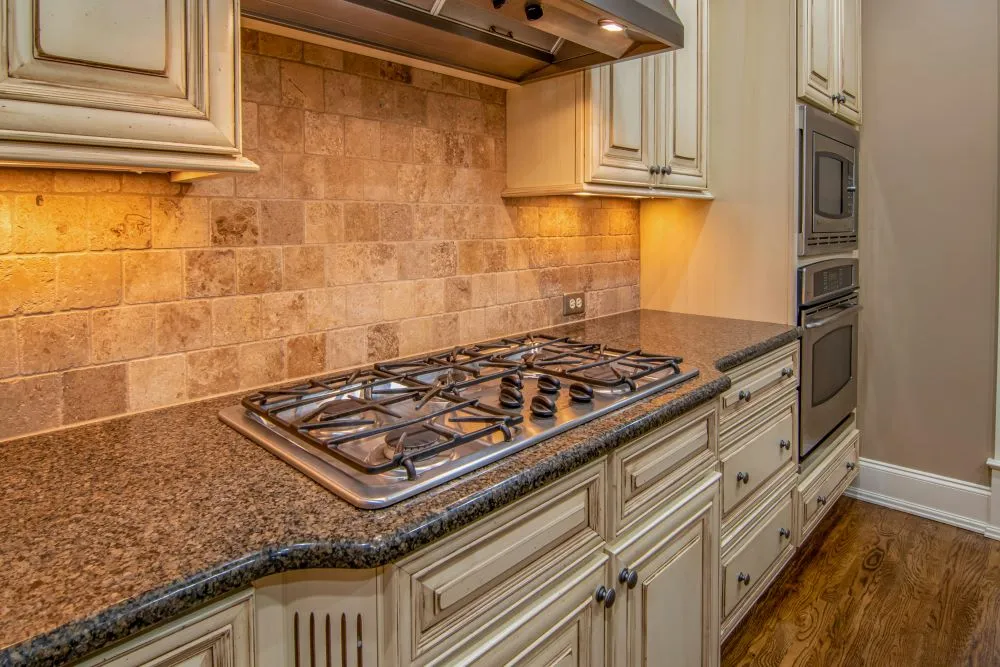
Longevity is key when it comes to adding value to your home. A granite backsplash not only enhances the aesthetic appeal of your kitchen but also serves as a long-term investment that can yield high returns when it’s time to sell your home.
Low Maintenance Requirements
Your kitchen backsplash should not only look stunning but also be easy to maintain. Granite backsplashes are a low-maintenance option that requires minimal care to keep them looking their best. Regular cleaning with a mild detergent and sealant application every few years are typically all that’s needed to preserve the beauty of your granite backsplash.
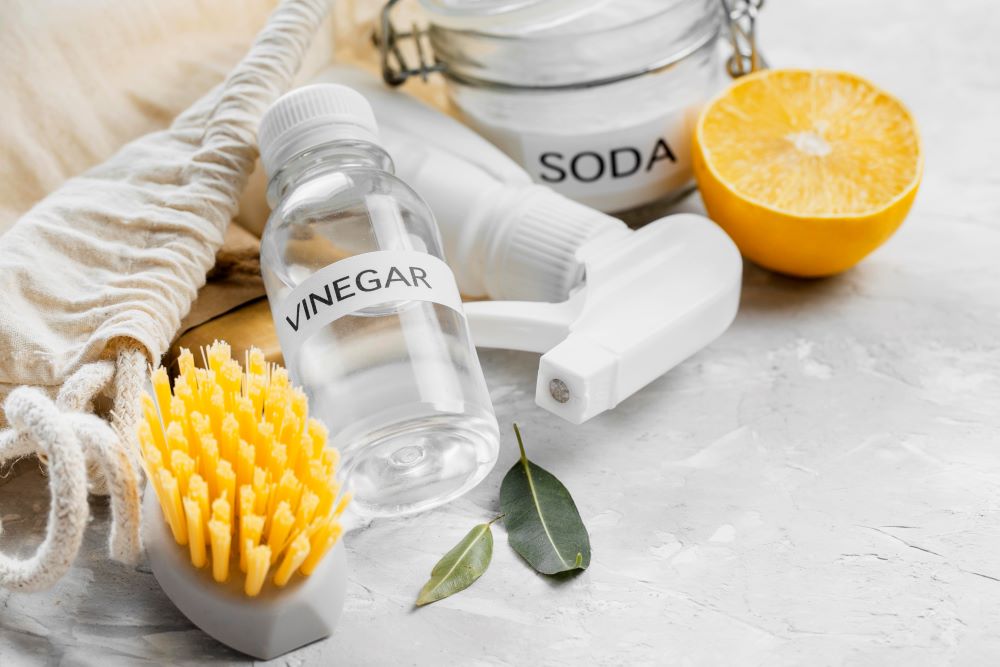
Backsplashes that offer both beauty and ease of maintenance are a winning combination for busy homeowners. With a granite backsplash, you can enjoy a stunning focal point in your kitchen without the hassle of extensive upkeep.
Repairable and Replaceable:
Granite stands out as a material that offers both repairability and replaceability, qualities not commonly found in other building materials. Even when minor damages occur, such as small chips or scratches, granite can be efficiently repaired either by homeowners themselves or by skilled professionals. This repair process involves techniques such as filling, polishing, and resealing, restoring the surface to its original condition with relative ease.
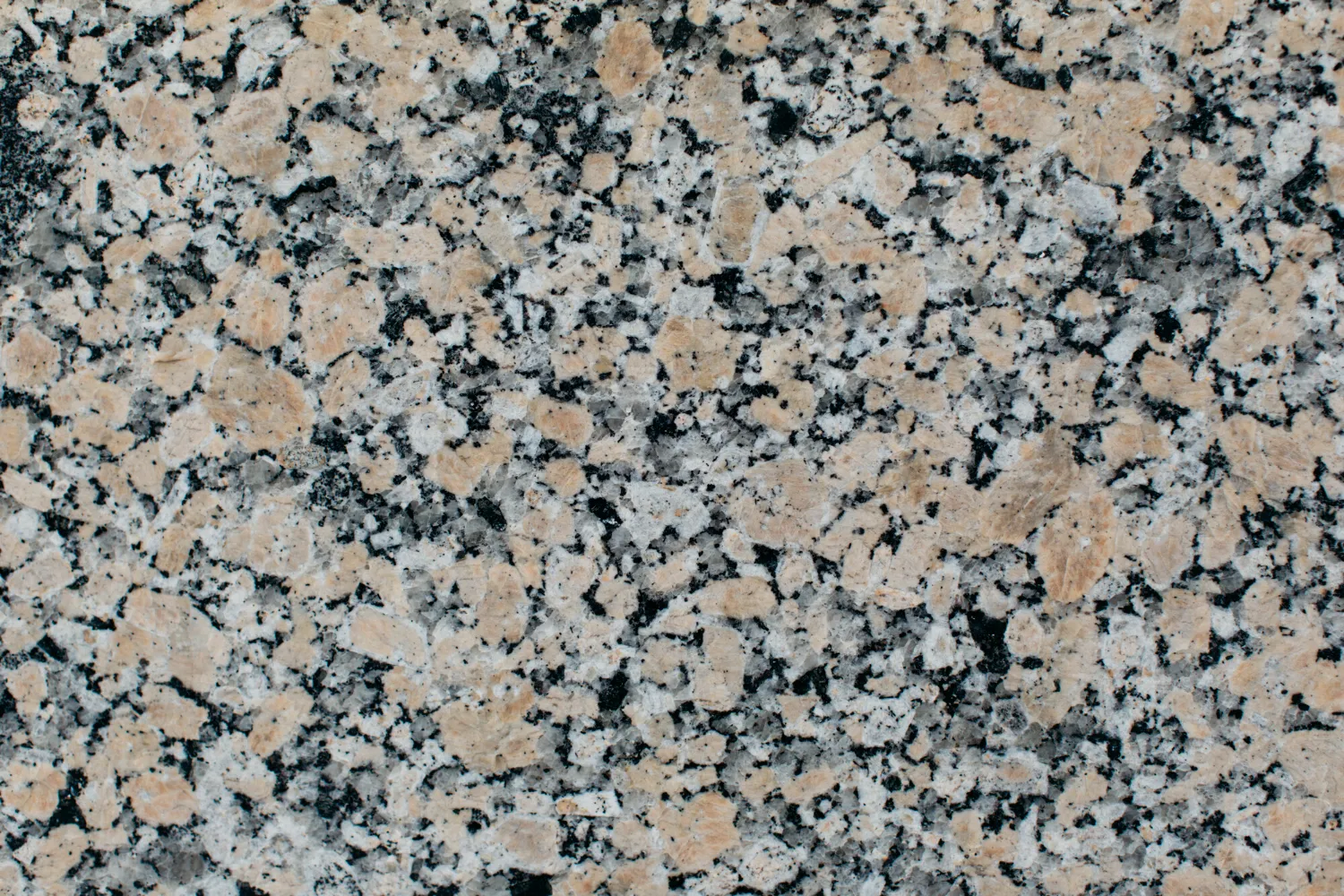
In cases where damage is more extensive or severe, such as significant cracks or breakage, granite maintains its advantage by being readily replaceable. Unlike some materials that require extensive demolition or complicated procedures to replace damaged sections, granite can be swapped out with a new slab of the same variety relatively straightforwardly. This replacement process ensures that the integrity and aesthetic appeal of the space can be swiftly restored without significant disruption or expense.
Cons of Granite Backsplashes
Cost Considerations
Keep in mind that granite backsplashes can be quite expensive compared to other materials. The cost of the granite itself, along with the installation fees, can add up quickly. Additionally, if you choose a more exotic or rare type of granite, the price can skyrocket even further. For some homeowners, the initial investment in a granite backsplash may not fit within their budget. In such cases, exploring alternative materials that mimic the look of granite, such as quartz or porcelain tiles, could be a more cost-effective solution while still achieving a similar aesthetic.
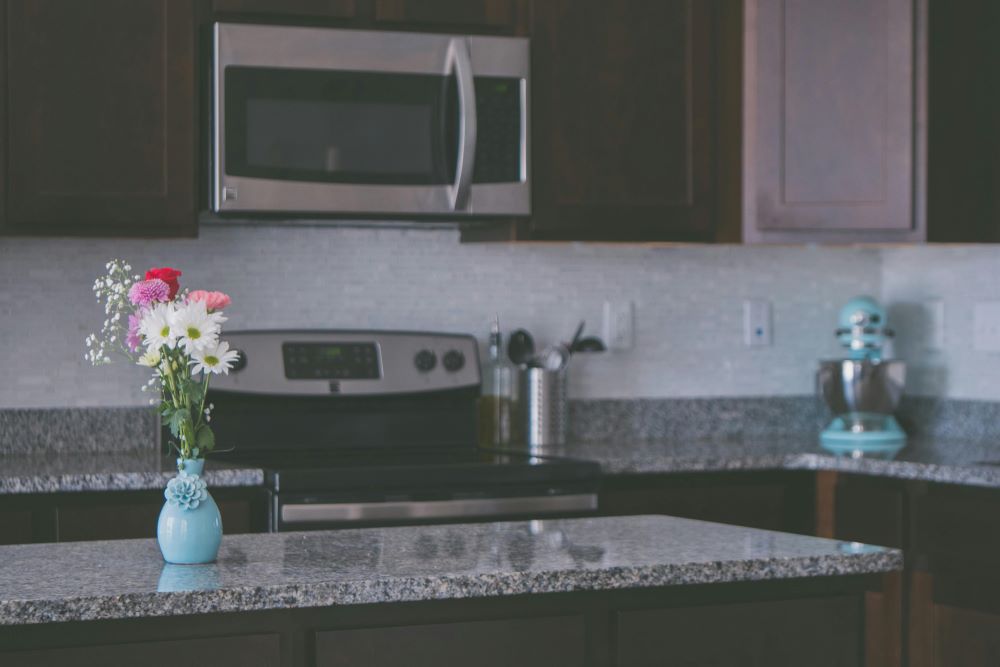
Seams and Matching Issues
For some larger kitchens or areas with complex layouts, matching the seams of granite backsplashes can be challenging. Even with careful selection and precise measurements, variations in color or pattern can still occur, leading to visible seams that may disrupt the overall aesthetic appeal of the backsplash.
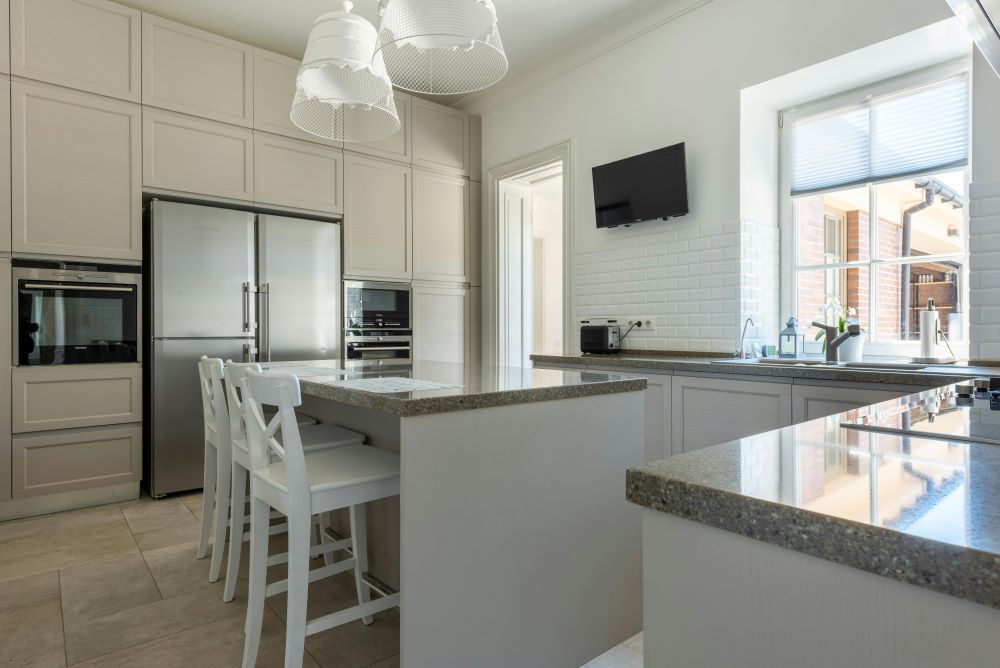
To address matching issues, it’s vital to work closely with a skilled installer who has experience in handling granite backsplashes. They can offer suggestions on seam placement and techniques to minimize any noticeable differences between slabs, ensuring a more cohesive and seamless look. With proper planning and communication with your installer, you can mitigate potential matching issues and achieve a visually stunning granite backsplash that enhances the beauty of your kitchen.
Weight and Installation Challenges
Installation of granite backsplashes can pose significant challenges due to the weight of the material. Unlike lighter options such as tiles or laminate, granite is heavy and requires careful handling to prevent damage during transportation and installation. This can result in higher installation costs due to the need for specialized equipment and experienced labor.
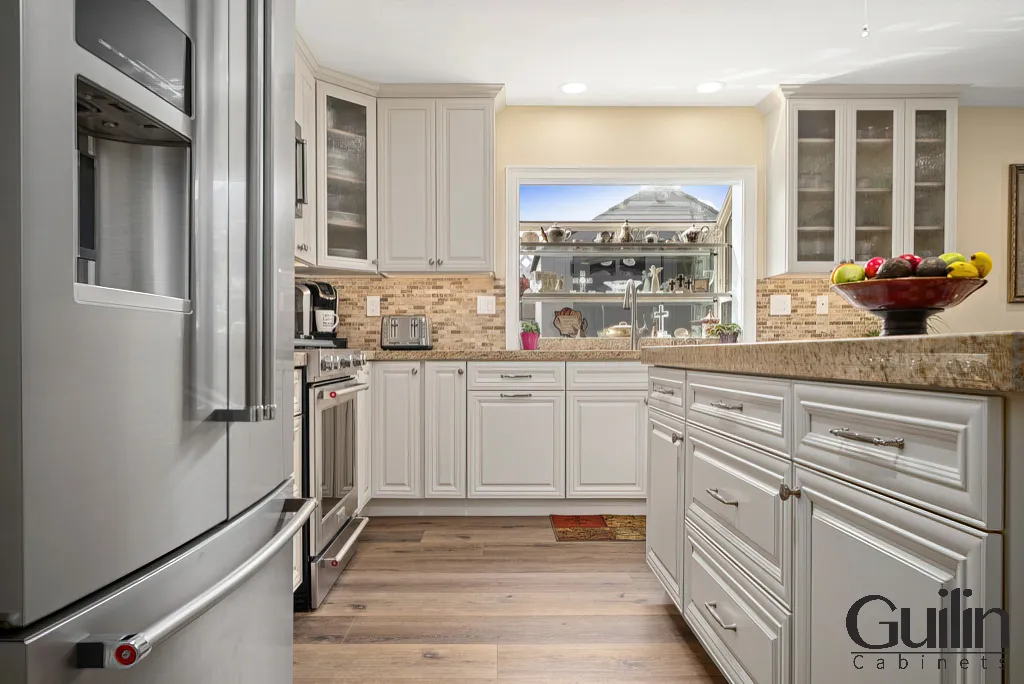
Staining Issue:
Granite can be susceptible to staining in certain circumstances. To prevent any potential etching or staining, it’s crucial to promptly clean up any spills or food that come into contact with the surface. It’s best to use a soft damp cloth for cleaning, as harsh scrubbing tools can exacerbate the issue. If necessary, opt for branded cleaners specifically designed for granite surfaces to ensure effective and safe cleaning.
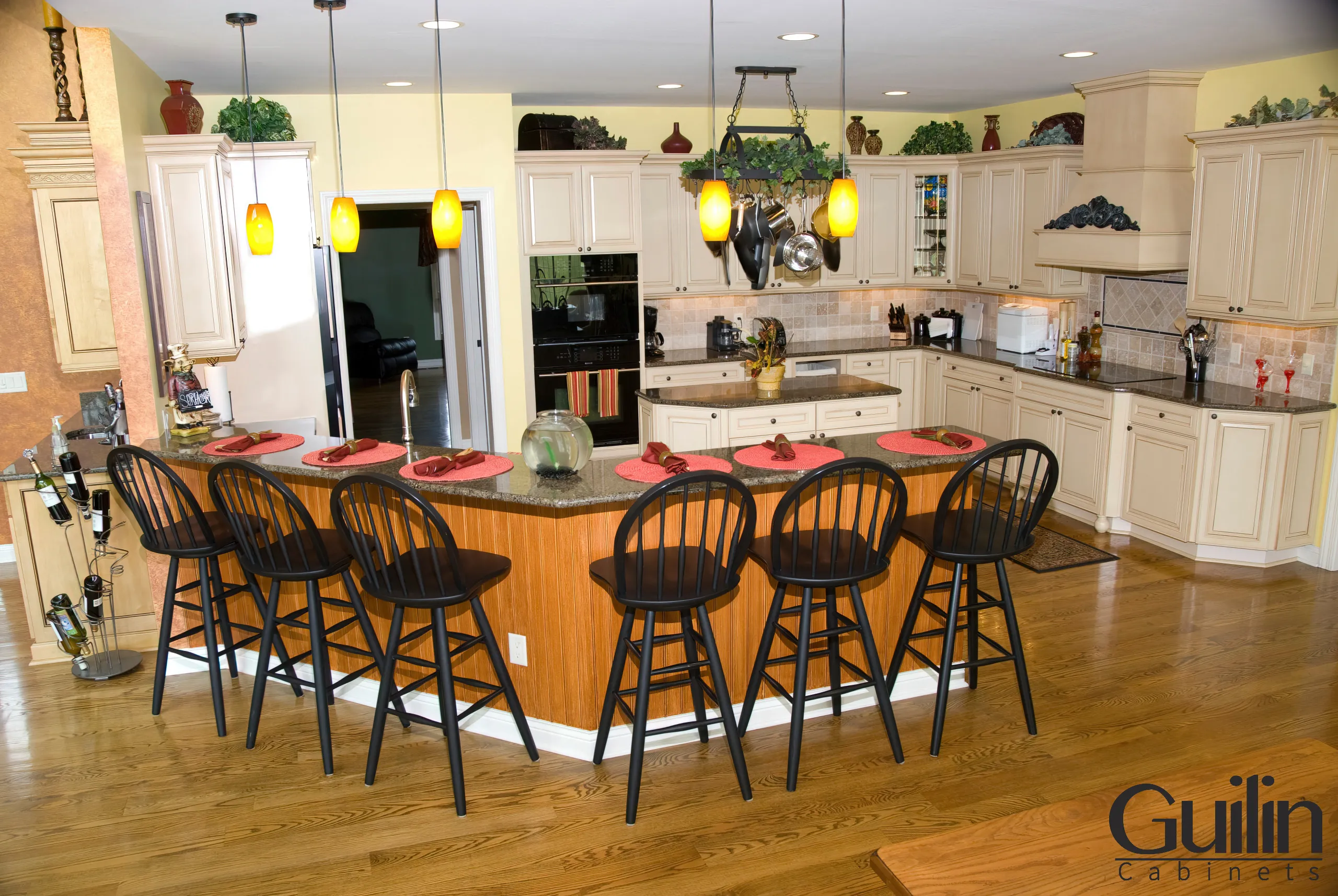
Granite Backsplash Finishes Options
The many granite backsplash options can help you create a one-of-a-kind design for your kitchen. Glazed, brushed, leathered, and honed finishes are among the most common choices.
| Polished | Shiny, easy to clean |
| Honed | Matte finish, hides water spots |
| Leathered | Textured surface, forgiving of imperfections |
| Brushed | Textured appearance, adds depth |
| Flamed | Rough, rustic look |
The glossy and sparkling surface of a polished finish makes it easy to clean, but it may also show more scratches and smudges. Conversely, fingerprints and water stains are less noticeable on surfaces with an honed finish because to the matte appearance it imparts. The rough surface of a leathered finish is fashionable and easy on the eyes. Your backsplash can look more three-dimensional with a brushed finish, which gives it a slightly textured look. Lastly, a flamed finish gives the surface a rough texture, perfect for achieving a more rustic aesthetic in your kitchen.
=> Read More: Popular Granite Finishes: Pros, Cons With Their Applications
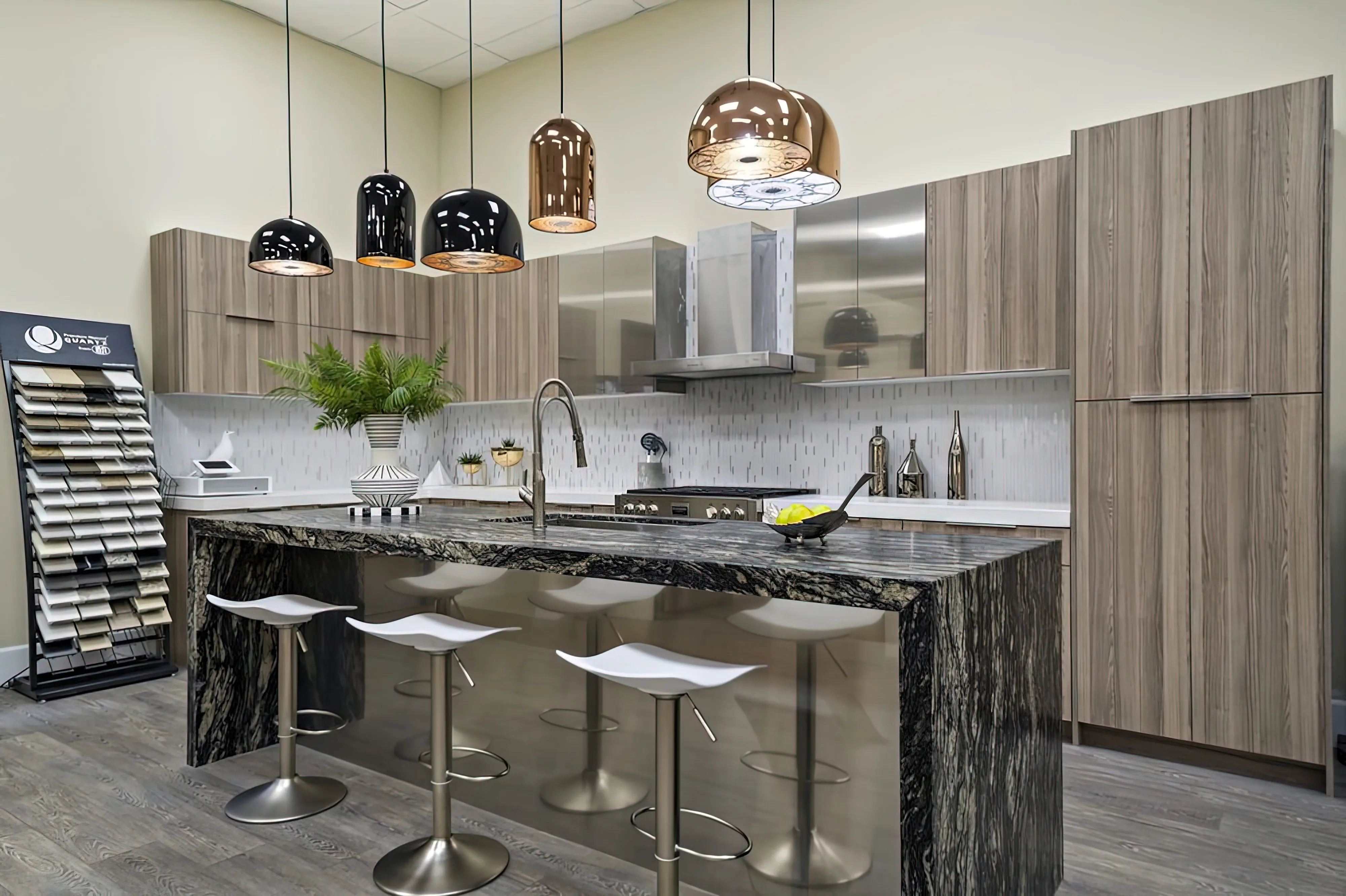
Final Words for:
Absolutely, when we meticulously weigh the pros and cons of granite backsplashes, it becomes unequivocally evident that granite emerges as the superior choice. This assertion stems from the fact that while the drawbacks of utilizing granite for backsplashes are typically shared among various other materials, its advantages uniquely position granite as a standout option. Consequently, the factors underlying granite’s widespread acclaim worldwide are both authentic and compelling, warranting wholehearted endorsement.
Frequently Asked Questions (FAQs)
Is Granite Outdated?
All too often, homeowners wonder if granite is a thing of the past. To answer this question, granite is a classic choice that has stood the test of time. While trends may come and go, granite remains a popular option for backsplashes due to its durability, versatility, and timeless beauty. Many designers and homeowners still favor granite for its ability to elevate the look of a kitchen or bathroom with its natural appeal. Granite may have been around for a while, but it’s certainly not outdated.
Can Granite Backsplashes Be Installed Over Existing Tile?
Can you put granite backsplashes over old tiles? That’s a common question. The urge to modernize a room without disturbing the existing tile makes this a popular topic of inquiry. It should be noted, though, that with the right preparation, granite backsplashes can be put over existing tile. Expert installers can make sure everything goes smoothly and looks great in the end.
How Often Should Granite Be Sealed?
On of the most commonly asked questions about granite backsplashes is how often they should be sealed. Granite is a porous material that can absorb liquids and stains if not properly sealed. I is recommended to seal granite backsplashes at least once a year to maintain their beauty and functionality. Regular sealing will help protect your granite backsplash from everyday wear and tear.
Can I Use Granite as a Backsplash in a Bathroom?
Granite is a popular choice for bathroom backsplashes due to its durability and resistance to moisture. It adds a touch of luxury and elegance to any bathroom space. Additionally, granite is easy to clean and maintain, making it a practical choice for a bathroom backsplash.
How to Handle Damage to Granite Backsplashes?
At some point, any homeowner’s granite backsplash will get damaged. It is critical to act quickly to fix damage, such as chips, cracks, or stains, so the problem doesn’t get worse. The beauty of granite backsplashes can frequently be brought back to life with the help of professional repair services. Epoxy or resin fillers often work well to fix small chips in granite and mix in with the stone. It can be required to repair the impacted portion of the backsplash in the event of more extensive damage, including big fissures or profound discolorations. Your granite backsplash will retain its luster and integrity for many years if you act quickly and get expert assistance.


